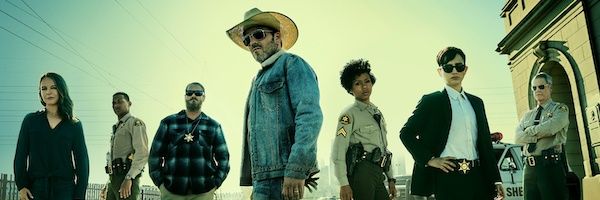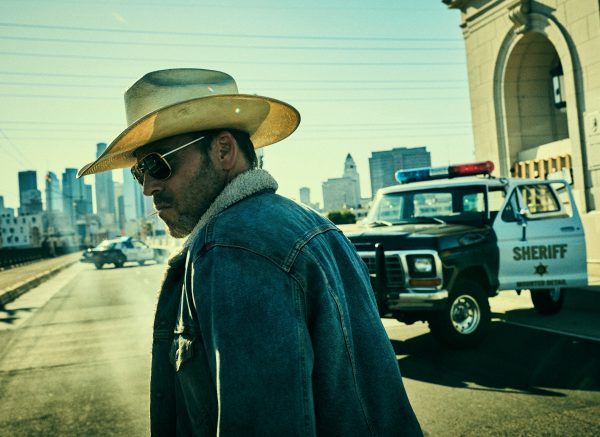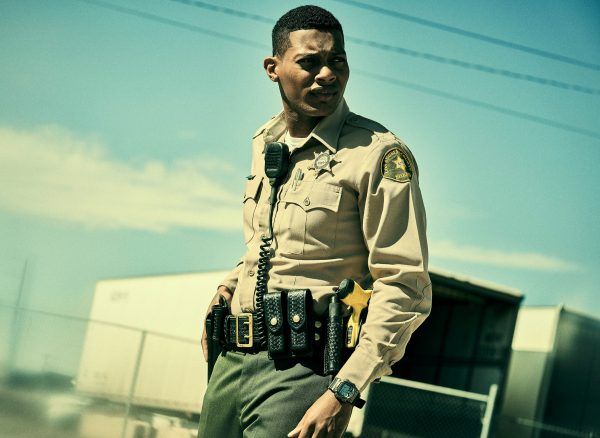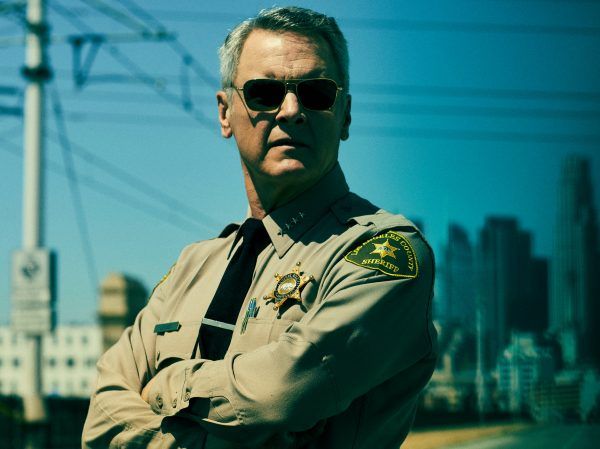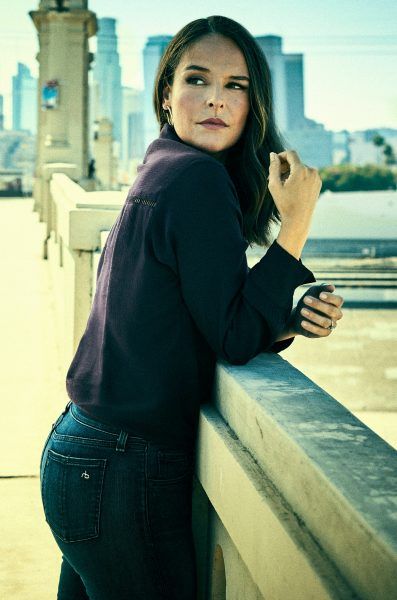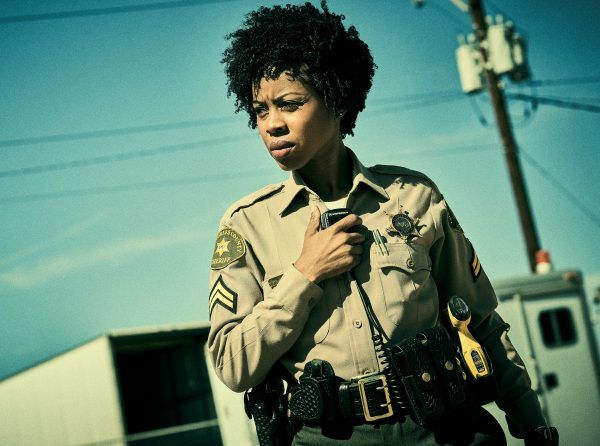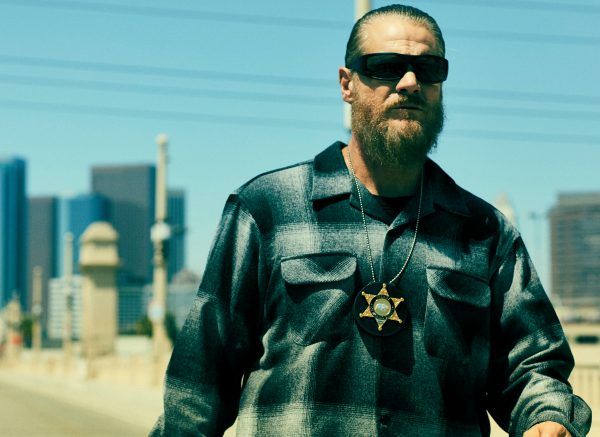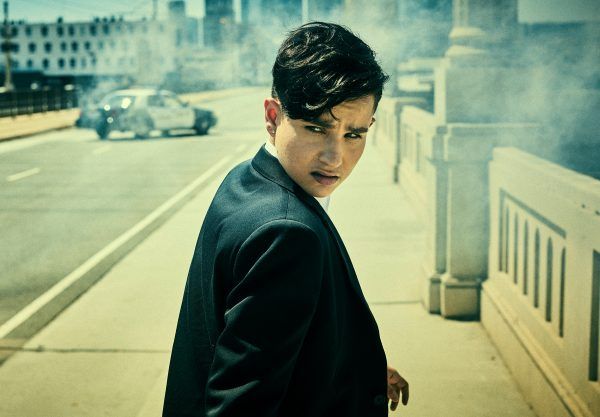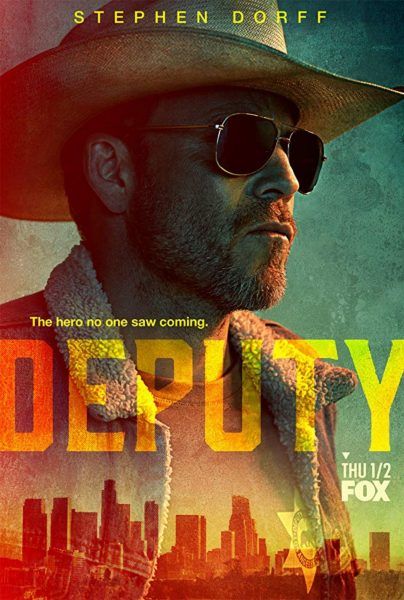From director/executive producer David Ayer, the Fox drama series Deputy follows Bill Hollister (Stephen Dorff), a fifth-generation lawman who suddenly finds himself running the Los Angeles Country Sheriff’s Department when the elected Sheriff dies and a rule that dates back to the Wild West puts him in charge. And while the pursuit of justice is his number one priority, being in this new position teaches him that doing what he feels is right can ruffle more than a few feathers.
During this 1-on-1 phone interview with Collider, filmmaker David Ayer talked about what led him to TV, how Deputy came his way, what made directing a TV pilot unique, picking the lenses he wanted to use, the etiquette that makes TV different from film, his approach to the action, what makes Bill Hollister a great character to center a show around, why Stephen Dorff was perfect for this role, and how working with actors is his favorite part of the process. He also talked about working with Shia LaBeouf on The Tax Collector, the status of the Bright sequel, the contemporary take on The Dirty Dozen that he’s writing and directing, the DEA drama that they have in development for Fox, and whether he’d still like to revisit the comic book movie genre.
Collider: How did Deputy come about? You haven’t really done TV, prior to doing this, so what prompted you to make the move to TV and why this project, in particular?
DAVID AYER: I started a company (Cedar Park Entertainment) with Chris Long. He’s my partner, and he’s a former network executive, so he was like, “Okay, let’s go make some TV.” It actually came through an agent who was friends with the former LA County sheriff, Jim McDonnell. We went and met with Sheriff McDonnell, who was the sheriff at the time, and he wanted a TV show that just showed law enforcement in a positive light and that showed the workings of the L.A. Sheriff’s department, and no one had really done that. So, we brought in Will Beall, who wrote a great pilot, and I figured, “Okay, I might as well go direct this thing.”
What made directing a pilot unique for you? Were there specific ways that it felt different than what you’re used to doing in film?
AYER: Yes. In a weird way, there was a lot of freedom that you don’t have in film, which sounds a little bit counterintuitive. Part of that comes from the Fox network just really trusting me to set the look of the show, and trusting my visual style. They were incredibly brave about doing an elevated primetime broadcast show. But as far as the directing process, I felt like I had permission to take chances. This great DP, Sharone Meir, was setting the look of the show and it was very technical, so we picked a specific lens set, we lit it a certain way, and I actually ended up operating the camera a lot, which is why there are so many crazy angles. As the guy running the shop floor, I actually have a lot more permission to break the rules than a regular camera operator does because they’d be afraid to get yelled at. My mantra was, “Let’s mix it up. Let’s make it weird. Let’s make it visual.” I wanted the show to have its own feel and look and style, and I think we did a great job of thought.
How did you end up deciding the lenses that you wanted to use? Did you know the look that you wanted, or did you try things out to see what look you wanted?
AYER: Sadly, everyone uses the same line-up when they photograph television. I went with a camera that gives a very film-like look, and I went with vintage lenses. The lenses, themselves, are about 60 years old, or something, so they have a very soft, organic look. Everyone seems to use these hyper-sharp lenses, these days, and they don’t make faces look good. For me, it’s all about performance and actors and capturing those faces. By the way, Cooke Panchros are what we used. We had two sets, and one was uncoated, so it flares out. A lot of that flare-y look was very engineered, and then we would break all of the rules, like shooting our own lights and things like that. If it looks good, nobody cares.
On a movie, the director is really the guy that everyone on set looks to. How was the experience on a TV show, of having a showrunner, having a writers’ room, and having a network?
AYER: There’s definitely a different etiquette to television. I had to learn when to step back and let people do their work, but also, the network’s very hands on and very specific about what they need. The great thing was that everyone was on the same page, and once I got on set, I definitely had full control. I understood why I was there and what my role was and, in a lot of ways, that made my life easier because some really competent people also got to drive the bus.
I’m sure it helps that people know your work and you have a body of work, and you’re not just walking in to do this job without people knowing who you are.
AYER: Yeah, that definitely helped. They definitely listened to me.
Do you feel like End of Watch is an influence on this show, in any way?
AYER: It’s in the memory banks. I have that experience, and such a great connection to the law enforcement community because of End of Watch. I try to evolve and grow with everything I do, and with this show, it’s really about finding its own voice and attitude, but also a voice and attitude that can be duplicated by all of the directors that have to shoot the episodes after me.
How challenging is it to maintain the level of action that a show like this requires? What do you feel are the biggest differences between the action you’ve directed for film versus the action you’ve done on this show?
AYER: They actually gave me a lot of resources for the action. There were some days where I had all of the tools. Part of it is lobbying. There’s this car that’s a camera vehicle that we used, and it’s expensive and requires its own crew, and everyone was like, “No, you can’t use it.” But by using it, I can shoot twice as fast and do twice the amount of work. By having that film experience, and knowing the tools and equipment, I could come up with a plan that I could prove would work to everybody.
Bill Hollister is such a fun character because he’s someone who’s not willing to just fall in line when he’s told to. What excited you about having a character like him at the center of the story? How does that shake things up?
AYER: It’s a great engine. Good TV is about character. If you have great characters, then you’re gonna have a great TV show. The natural conflict between a down and dirty, old school street guy versus, the clean, shiny bureaucracy, never gets old. It’s the wisdom of the common man versus the administrators and people who are more politically-oriented. It’s a great story engine. Hollister is an amazing character, and I think he’s gonna have a very long run.
There’s something very believable about Stephen Dorff, in this role. What do you think he brings to the role?
AYER: I really think this is what he’ll be remembered for and what he’ll always be defined for. It’s clear to me that he was born to play this role. He occupies that skin perfectly, with his look, his physicality, and his mannerisms. He’s such an incredibly gifted actor. You have someone who hasn’t worked in the broadcast space before, and he really brings such incredible skill and passion to the job.
One of the things that I love about your work is the performances that you get from actors, which is why I’m excited to also see The Tax Collector and see what you did with Shia LaBeouf, for that. And when I spoke to George Lopez, who’s in that film, a few months back, he told me that it will be very dark and scary. How do you think that film will impact audiences, and what can you say about working with Shia LaBeouf?
AYER: I love working with Shia. I worked with him on Fury. He’s all in. He becomes a benchmark for creativity and artistry because he’s so committed. He’s a true artist. He thinks and breathes and walks like an artist, and that comes with all the complexities of the world., but he’s so true to the process and craft that he keeps me very honest, when he’s on my set.
Do you know when we might get to see that, or at least get to see a trailer for that?
AYER: I’m still working on it, but it should happen pretty soon. Definitely, [in 2020].
You’re also writing and directing a contemporary take on The Dirty Dozen. How are you planning to approach that?
AYER: I think it’s just an opportunity for a great ensemble action franchise. I’ll have a really solid lead character, and I see it in the vein of the Mission: Impossible movies, or the Fast and Furious franchise, for which I wrote the first one. It’s like anything, you build an amazing family of characters, and then you watch them bounce off of each other and drive each other crazy.
Is it scary to take something like that and put it in present day, or does it feel like more open and exciting to do that?
AYER: I think it’s more open and exciting. For me, World War II is the Holy War. To do a more fun, comedic version of that war, I don’t think I could pull that off. But absolutely, I can do that present day, and have that fun and anarchy and wildness, and have modern characters with incredible diversity and real voices.
What is the status of the Bright sequel? Is that something that you’re still looking to do?
AYER: It’s still kicking around. We’re still moving scripts back and forth. It’s something that I’ll jump on when it materializes.
It was also announced that you’re going to be doing a one-hour DEA drama at Fox, that you’ll be directing. What excites you about the storytelling possibilities for something like that?
AYER: It’s a world that I’m really comfortable with and love. It’s gonna be set in Chicago, and it’s a beautiful city and a great place to swing a camera around. It’s really the story of like this task force and this guy, who’s the dad of this DEA family that goes and takes down bad guys. Craig [Gore], the showrunner on it, is just an incredibly gifted writer and we’re all really happy with what he’s bringing to the table. It’s just another excuse for me to be on set and have fun.
The projects that you do have such interesting characters in them that it seems like the casting process must be really fun and interesting because what actors wouldn’t want to play characters like these?
AYER: Yeah, exactly. My favorite part of the process is working with actors, challenging them, and developing the characters with them. That’s incredibly important because I’m gonna move on, so the more that I can give them, and the more depth and problems to grind out, the more they’re on track to really be consistent. That’s where we’ve really found the voices of these characters.
Deputy has the vibe of a classic Western while also having a modern-day feel. Was that something that was always on the page, from the beginning?
AYER: I think a lot of that really comes from Will Beall. He found the voice of Hollister. It’s a difficult exercise, to create that complex tone and sensibility, and then have that rugged Western vibe in such a diverse and cosmopolitan city as Los Angeles. But L.A. was a cattle trail. Sunset Boulevard was an old cattle trail. L.A. used to be at a small, dusty town. I think the Sheriff’s department was formed in something like 1843. It’s been around a long time.
Are there specific challenges to doing scenes that involve a lawman who sometimes rides up on a horse?
AYER: Yeah, you’re always trying to figure out, “How do we get the horse in here?” We’re pretty daring, but at the same time, we’ll cave for realism.
I love that Bill Hollister is a guy who’s not afraid of or intimidated by a strong woman. What do you like about getting to explore the relationship between him and his wife?
AYER: I love it because it’s like a living relationship. You buy them as a couple. You see how they compliment each other. Yara [Martinez] is just a great actor, and Stephen is a great actor, so when you put them together, there’s depth and connection, and there are layers. You feel their history, as a couple. She’s gonna have a great run, this season, and her storylines are gonna get more interesting and more complex. It’s just wonderful to have that dynamic to build upon.
After the first Suicide Squad film came out, there was talk that you’d do the sequel, and then that you would instead be doing Gotham City Sirens, and now things seem to just be going in a different direction, in general. Did you have a direction that you wanted to take that franchise? Did you have specific things that you were hoping to do with that story and those characters?
AYER: I definitely want to step back into the comic book movie space. I’ve gotten a PhD in them, by making one. But it was best for me to step aside and let them figure out what they wanna do with the franchise. But, I’d love to come back.
Deputy airs on Thursday nights on Fox, starting on January 2nd.

